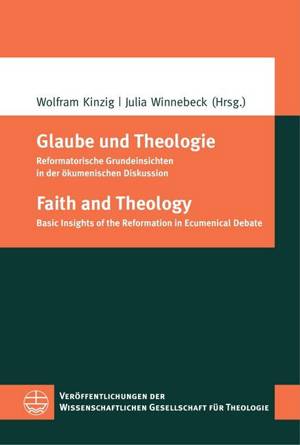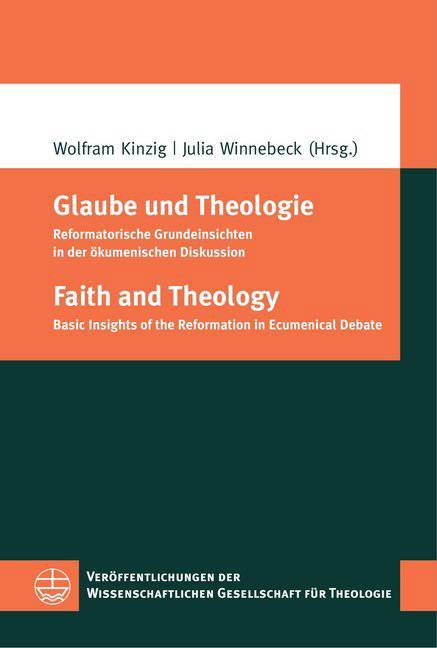
Je cadeautjes zeker op tijd in huis hebben voor de feestdagen? Kom langs in onze winkels en vind het perfecte geschenk!
- Afhalen na 1 uur in een winkel met voorraad
- Gratis thuislevering in België vanaf € 30
- Ruim aanbod met 7 miljoen producten
Je cadeautjes zeker op tijd in huis hebben voor de feestdagen? Kom langs in onze winkels en vind het perfecte geschenk!
- Afhalen na 1 uur in een winkel met voorraad
- Gratis thuislevering in België vanaf € 30
- Ruim aanbod met 7 miljoen producten
Zoeken
Glaube Und Theologie / Faith and Theology
Paperback | Engels, Duits | Veröffentlichungen der Wissenschaftlichen Gesellschaft für Theologie (VWGTh) | nr. 54
€ 117,45
+ 234 punten
Uitvoering
Omschrijving
Since the beginnings of Christianity, there has been a fundamental tension between faith and theology. The Reformation, with its principle of sola fide on the one hand and its institutionalisation of a scripture-based academic theology on the other hand, drew particular attention to the tension and suggested new answers to that problem. That effort contributed to a fundamental transformation of academic theology within the faculties of Protestant Theology which emerged as a result of the movement. In the past decades, however, academic theology has come under considerable pressure. [In much of Europe and North America, ] The process of secularization has led to a massive decline in religious education and - partially as a reaction to this - to a trivialization of academic theology. At the same time, one can observe a global proliferation of evangelical and Pentecostal groups. These groups sometimes display a certain indifference towards academic theological training, or even reject it altogether. In view of this development the question arises to what extent the relationship between faith and theology as defined in the wake of the Reformation will in future continue to be religiously productive and may thus serve the churches and their congregations.
Specificaties
Betrokkenen
- Uitgeverij:
Inhoud
- Aantal bladzijden:
- 388
- Taal:
- Engels, Duits
- Reeks:
- Reeksnummer:
- nr. 54
Eigenschappen
- Productcode (EAN):
- 9783374058068
- Verschijningsdatum:
- 1/07/2019
- Uitvoering:
- Paperback
- Formaat:
- Trade paperback (VS)
- Afmetingen:
- 161 mm x 232 mm
- Gewicht:
- 526 g

Alleen bij Standaard Boekhandel
+ 234 punten op je klantenkaart van Standaard Boekhandel
Beoordelingen
We publiceren alleen reviews die voldoen aan de voorwaarden voor reviews. Bekijk onze voorwaarden voor reviews.








